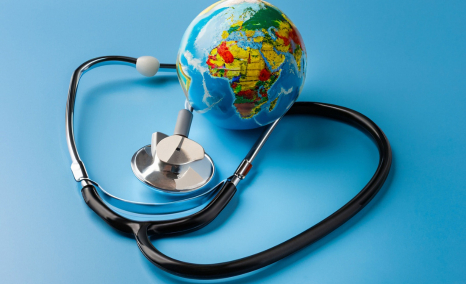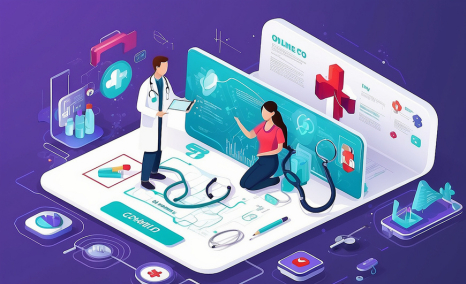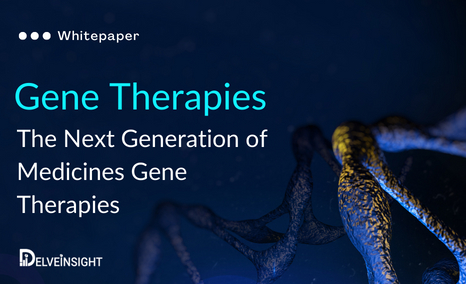Table of Contents
The mobile app is one of the fine examples of communications systems. The mobile app comes in various forms and formats to meet the various needs of the user. We have moved so much over a short period that it is extremely difficult to imagine a day without using smartphones or tablet PCs and the apps in it. For every task or requirement, we have a dedicated app that provides all the possible information and solutions. Similarly, the healthcare segment is also surrounded by a wide range of apps. These healthcare apps are application programs that offer health-related services ranging from wellness to doctor consultations, health diet management for severe disease to mental health peace. The user can access them at any setting whether it is at his home and on-the-go. Apart from health solutions, at a larger scale, these health apps are creating a health consciousness among the population. Combined with mHealth and electronic medical records (EMR), the apps are capable of providing vital health states which are easy to share and analyze. During the fight against the Covid-19, these apps have played a key role in meeting various healthcare demands, similarly, the growth is likely to continue post-covid-19 as well.
Mobile Health Apps Segmentation and Popular Apps in the Domain
As per the types of use, the mobile apps are segmented into categories namely – Telemedicine apps (also referred to as Disease & Treatment Management) and General Health & Wellness Management apps. Similarly, one more app category specially dedicated to women’s health commonly called femtech is also getting huge demand among women.
Telemedicine Apps
Telemedicine apps help the user to connect with the doctors for consultations regarding health issues via video, voice, or chat. The patient can book appointments and virtually consult with the concerned doctor. Similarly, the telehealth apps come with an electronic document flow that helps the exchange of important docs between the doctor and patient. Some of the leading telemedicine apps/platforms include VirtuMedix, eVisit, MDLIVE, Lemonaid, LiveHealth, PlushCare, Doctor on Demand, Amwell, Talkspace, Teladoc, and several others.
General Health & Wellness Management (Healthy diet Apps or Mental health Apps)
As people are getting more conscious about their health, the demand for wellness apps is on the next level these days. Especially, the youth and the working population are getting more attracted to monitoring their daily activity. These apps along with the day-to-day activities are also efficient in the management of expensive chronic conditions. The top apps in the Health & Wellness Management management include Headspace, Wellable, Noom, Exhale, Meditopia, Fitness+, Power Nap App, Elevate, and several other apps.
Apps Targeting Women’s Health
Women’s healthcare apps often fall under femtech, are also one of the fastest-growing app segments. Applications in women’s health deal with good resources or information related to pregnancy tracking, weight monitoring, medication reminder, sleep cycle tracker, period and ovulation tracker, and many others. The apps can be modified to meet the desired need. Hello Clue, Nurx, Biem, Plant Nanny, Eve by Glow, Aunt Flo, Maven Clinic, MINDBODY App, and NextPill, are some of the most popular femtech apps that help to meet various needs related to women’s health. Along with these, some of the apps provide the option to connect with therapists, gynecologists, or nurse practitioners.
What are the Benefits of Mobile Health Apps?
Comes in various forms and formats, mobile apps are providing valuable services and information to the user and healthcare professionals. Some of the key benefits of the mobile apps include:
- Improved efficiency and speed – The healthcare apps can enhance healthcare delivery with more efficiency, as they can handle multiple queries and requirements at a time.
- Reduction in healthcare costs – The cost associated with the healthcare consultation reduced significantly with the usage of apps as the maintenance cost is less.
- Easier and convenient to use – The healthcare apps can be accessed at any time of the day. They have a 24/7 patient monitoring system. The mobile health app coupled with wearable devices can monitor vital stats such as blood pressure, heart rate, glucose levels, stress management, sleep quality, nutrition tracking, and several other important activities. Similarly, telemedicine is improving the accessibility of healthcare information to remote areas.
- Save time – With the healthcare apps, the patients can easily connect with the healthcare provider for consultation. It saves traveling time between home and the healthcare center and also requires fewer visits as compared to the traditional approach.
- Seamless exchange of data – The healthcare apps come with an inbuilt option to share and transfer the health data across the healthcare system. Similarly, the app provides an option for secure and hassle-free process payment options with different gateways for medical bills and subscriptions. If you forget to pay the bills, these apps send notifications as a reminder.
Encouragement to live a healthy lifestyle, easier communication, improved patient monitoring, appointment scheduling, and counseling are some other benefits of the healthcare apps.
What are the Common Disadvantages of Mobile Health Apps?
- Data Privacy – The health apps continuously collect and analyze the health data of the person. The threat to the exposure of personal information by the hacker and sharing with the third parties is a major concern. Over the past few years, in several stances, news and updates regarding the leakage of health data have been reported by the reported apps manufacturers.
- Accuracy of Data – The information and advice provided by healthcare apps is also an important concern with healthcare apps. Different apps use different methods and tools to analyze health data. In some cases, the data measured with the apps are found to be varying when compared with the MedTech devices.
Internet accessibility, the high cost of smartphones, lack of regulatory approval, high cost for in-purchase applications are some of the other key factors hampering penetration of the mobile health apps in the market, faltering their demand.
Future of Medical Mobile App Market
Companies in the mobile app market target particular groups to meet their needs. However, with the growth in the user base and variable preference, companies are also widening their services to increased engagement, exposure, and revenue. Similarly, companies in the healthcare app market are also looking for new and innovative opportunities to widen their services.
Overall, the health apps hold a huge potential to transform the medical ecosystem thus providing better health outcomes for users. In the coming years, the demand for healthcare apps is likely to increase with the advancement in features (like attractive interface, eye-catching graphics, and icons and analytics option), awareness among the user, rise in the smartphone user, and also the penetration to the new geographies. Coupled with Artificial intelligence, the healthcare apps will transform the healthcare dynamics significantly. However, the lack of data security, policy issues regarding healthcare data and their management, and the regulatory issue will be the major factor affecting the usage and will act as a key barrier.









-Agonist.png)


